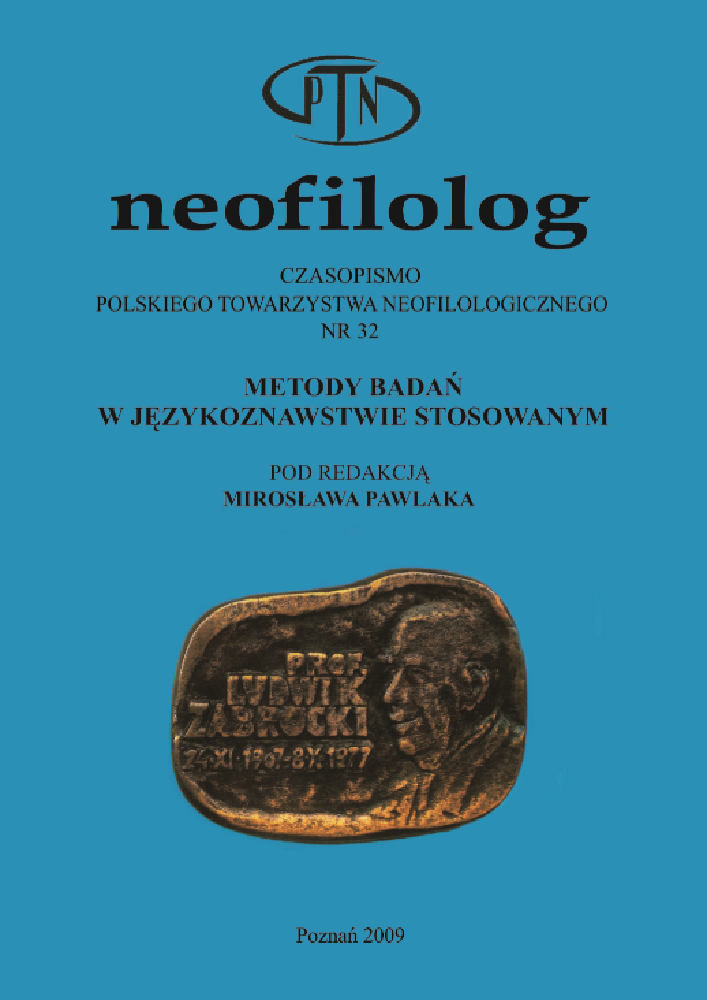Abstract
The article explores common mistakes made while interpreting statistics in questionnaire studies, which may reflect insufficient training in research
methodology. It reveals problems in qualitative and quantitative analysis in the published literature. It also discusses the possible reasons why errors occur in the process of constructing diagrammatic representations of the collected data. Examples of errors as they occur in published articles are also cited to prove that such problems are far from being hypothetical and do appear in research reports. They are mainly reflective of erroneous beliefs concerning statistical significance testing, chi-square analysis, covariance statistical corrections, as well as presentation of statistically inaccurate results.
References
Brzeziński, J., 2000. Badania eksperymentalne w psychologii i pedagogice. Warszawa: Scholar.
Ferguson, G. A. i Takane, Y. 2002. Analiza statystyczna w psychologii i pedagogice. Warszawa: Wydawnictwo Naukowe PWN.
Gajdzińska A. i Krzyżanowski P. (red). 1999. Przeszłość w językowym obrazie świata. Lublin: Wydawnictwo UMCS.
Luszniewicz, A. i Słaby, T.: 2001. Statystyka z pakietem komputerowym Statistica TM PL. Teoria i zastosowania. Warszawa, C. H. Beck.
Niemierko, B. 2004. Pomiar wyników kształcenia. Warszawa: WSiP.
Openheim, A. N. 2004. Kwestionariusze, wywiady, pomiary postaw. Poznań: Zysk i S-ka.
Pawłowski, A. 1999. „Metodologiczne podstawy wykorzystania słowników frekwencyjnych w badaniu językowego obrazu świata”, w: Gajdzińska A. i Krzyżanowski P. (red). 1999. 81-99.
Tadeusiewicz, R. 2000. Drogi i bezdroża statystyki w badaniach naukowych: (http://www.statsoft.pl/czytelnia/badanianaukowe/d0ogol/nadrogi6.pdf).
License
Copyright (c) 1970 Halina Widła

This work is licensed under a Creative Commons Attribution-NoDerivatives 4.0 International License.
Authors
Authors of texts accepted for publication in Neofilolog are required to complete, sign and return to the Editorial team’s office the Agreement for granting a royalty-free license to works with a commitment to grant a CC sub-license.
Under the agreement, the authors of the texts published in Neofilolog grant Adam Mickiewicz University in Poznań a non-exclusive, royalty-free license and authorize the use of Attribution-NoDerivatives 4.0 International (CC BY-ND 4.0) Creative Commons sub-license.
The authors retain the right to the free disposal of the work.
Users
Interested Internet users are entitled to use works that have been published in Neofilolog since 2017, under the following conditions:
▪ attribution – obligation to provide, together with the distributed work, information about the authorship, title, source (link to the original work, DOI) and the license itself.
▪ no derivatives – the work must be preserved in its original form. Without the author's consent, it is not possible to distribute the modified work in the form of translations, publications, etc.
Copyrights are reserved for all texts published since 2017.
Miscellaneous
Adam Mickiewicz University in Poznań retains the property right as a whole (layout, graphic form, title, cover design, logo etc.).
